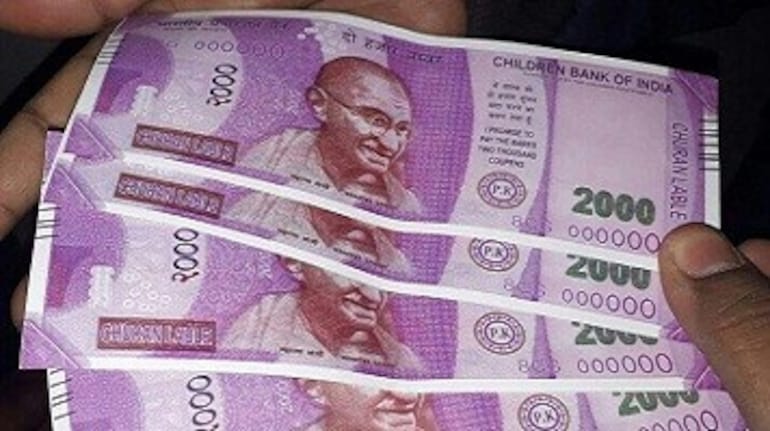



Another banking sector fraud with “Children Bank of India” substituting the Reserve Bank of India in the fake Rs 2,000 notes dispensed by a State Bank of India ATM, has raised concerns over banks’ cash outsourcing services.
Lax compliance by vendors and banks, who outsource key ATM functions such as cash logistics should have tighter norms and regulations, sources in the industry said.
“This is a system issue. Banks need to outsource certain services but the need of the hour is stricter guidelines and clear regulations in the cash transit firms. Maybe the government or RBI can come up with a rule on the pedigree, background and processes in place with a bank guarantee or mandates,” said Navroz Dastur, CEO of NCR India, a leading ATM firm.
The Rs 2,000 notes dispensed on February 6 from the ATM installed in Tigri in Sangam Vihar, Delhi, read ‘Children Bank of India’ in place of Reserve Bank of India, Bharatiya Manoranjan Bank instead of Bharatiya Reserve Bank, ‘Guaranteed by the Children’s Government’ in place of Guaranteed by the Central Government, a 'P.K' logo instead of the RBI seal, ‘Churan Lable” substituting the Ashoka Emblem, zeros replacing the serial numbers and other major defects on the bogus notes.
According to another ATM operator, “A lot of times we find some cash missing at ATMs leading to cash shortages. The cash vehicles sometimes do not have armed guards along. There is a serious lacunae in the system. It can be an easy target for those working on a meagre wage of Rs 5,000-10,000 to earn quick money. People service with banks and ATMs with the highest trust.”
A lot of services are outsourced to agencies and they hire cash-in-transit companies. Since there is no mandate on armed guards and no regulations, what happens from the time of handing over the cash from the bank's currency chest till it is loaded at the ATMs is not known.
Last year, RCI Cash Management Services was involved in multi-crore funds siphoning scam.
Like in foreign countries, cassette-swap system was recommended by RBI in 2009, where banks load cassettes with cash and seal them. These sealed cassettes are carried by the cash-in-transit companies without coming in physical contact of the cash. This would enhance security in handling cash.
Dastur says this has not been implemented as it is costlier and our infrastructure is not ready for it.
Last year, this issue was raised when data of 3.2 million debit cards involving 19 banks and over 90 ATMs witnessed a security breach. This led to suspicious transactions of Rs 1.03 crore from these vulnerable debit cards from leading banks like SBI, ICICI Bank, HDFC Bank, Axis Bank and Yes Bank. The cards were used at regular ATMs and at maintained third-party agencies. It came to be known that the ATM softwares may have been tampered with.
After the data breach, Rana Kapoor, MD and CEO of Yes Bank had said, “Outsourcing partners need a lot more vigilance and security control to make sure they don’t endanger the delivery and system risk…There is fair amount of policing as far as outsourcing is concerned and they could sometimes intensify into high operational risks as well.”
RBI guidelines are not specific on the outsourcing services. In 2012, the Finance Ministry stressed on the operational expense model for ATM expansion rather than the usual capital expenditure model, to reduce costs. Under the opex model, third parties install and manage ATMs and get paid for each transaction. In the capex model, the bank manages everything.
Though armed guards are supposed to accompany the vehicles, there is no remote surveillance monitoring (RMS), real-time tracking of GPS location of the vehicle. Many employees of cash recyclers have died while on duty due to gunfire in many northern states.
RBI data shows there are a total of 2.05 lakh ATMs across the country as on October 2016.
Discover the latest Business News, Sensex, and Nifty updates. Obtain Personal Finance insights, tax queries, and expert opinions on Moneycontrol or download the Moneycontrol App to stay updated!
Find the best of Al News in one place, specially curated for you every weekend.
Stay on top of the latest tech trends and biggest startup news.